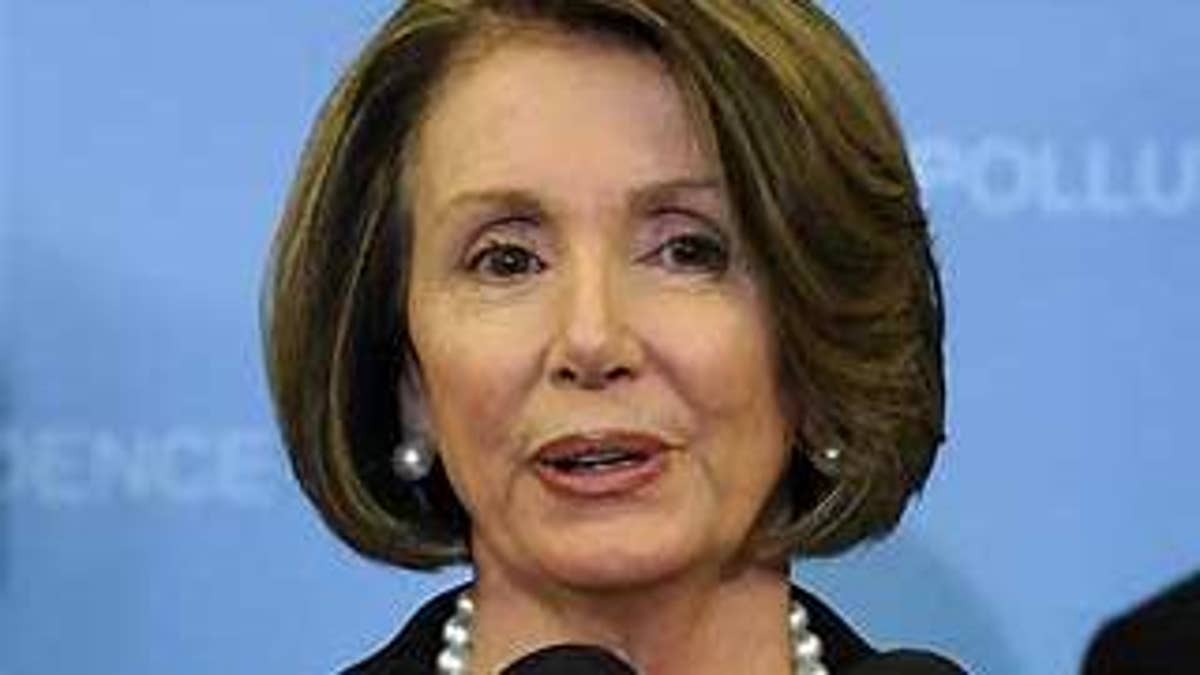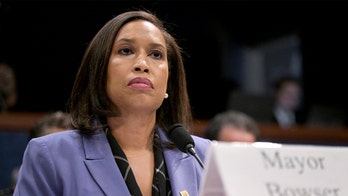
Republicans, hoping to turn the tables on Democrats who are open to prosecuting Bush-era lawyers for justifying "enhanced" interrogation techniques, are seeking to reveal the names of those lawmakers who were briefed on the tactics as much as seven years ago.
FOX News has learned there were more than 30 meetings and briefings with members of Congress on the subject since 2002.
The first such briefing dealt with the interrogation of Abu Zubaydah, the Al Qaeda operations chief who ran the training camps in Afghanistan where the Sept. 11 hijackers were trained. Sources said California Rep. Nancy Pelosi, now the speaker of the House, attended the meeting with then-Rep. Porter Goss, R-Fla. (who later became CIA director), and she did not raise any objections.
The briefings were given to the chairmen and ranking members of the intelligence committees in the House and Senate until 2006. That could cover Sen. John Rockefeller, W.Va., then-Sen. Bob Graham, Fla., and Rep. Jane Harman, Calif., all Democrats, as well as Sen. Pat Roberts, Kan., Sen. Richard Shelby, Ala., and Rep. Pete Hoekstra, Mich., all Republicans.
Defenders of the interrogation program note that if Congress had wanted to kill the program, all it had to do was withhold funding, which didn't happen.
Hoekstra, the ranking Republican on the House Intelligence Committee, has personally requested from Director of National Intelligence Dennis Blair an unclassified list of names of all members of Congress who attended those briefings, complete with dates and locations.
He told FOXNews.com the list will probably show many members were briefed "early and often."
"The purpose of this, of course, is to underscore the fact that people in Congress knew or were aware of the program, its details, and they approved of this program and authorized its funding," said Jamal Ware, spokesman for Republicans on the House Intelligence Committee.
Republicans have criticized President Obama for opening the door to prosecuting Justice Department lawyers who drafted the so-called "torture memos," which authorized harsh interrogation methods, including waterboarding. But they've also raised the point that if Democrats pursue charges against the lawyers, they'd be shielding others involved in the interrogation program.
"They can't blame the politicians in Congress who approved these tactics in 2002 because these are their friends," Rep. Lamar Smith, ranking Republican on the House Judiciary Committee, said in an e-mail. "So they're placing the blame on Bush administration officials, political appointees."
It's unclear how detailed the briefings with lawmakers on the interrogation programs were.
Pelosi said Thursday that at the briefing she attended, she was not told that waterboarding "or any of these other enhanced interrogation methods" were being used.
"What they did tell us is that they had some legislative council ... opinions that they could be used, but not that they would. And further, the point was that if and when they would be used, they would brief Congress at that time," she said.
Attorney General Eric Holder said Wednesday that he would follow the law with regard to the interrogation program.
A number of Democrats have defended the call for probes. Sen. Patrick Leahy, D-Vt., has been pushing for an independent, bipartisan commission to investigate.
But Senate Majority Leader Harry Reid, D-Nev., told reporters Thursday that he will not throw his support behind any independent commission to look into Bush-era interrogation policy until the Senate Intelligence Committee has completed its review late this year.
"I think that's really the direction that I'm going to follow closely. I think the intelligence committee is a bipartisan committee. They will make a public report..And then I think it's appropriate to start talking about what we do with that information. But until we get that information, I think we would all be better off just relaxing, understanding how difficult this is," Reid said. "I think that we must get the information. It's spotty now, and I think that a few months waiting to determine the right way to go about this is certainly not going to hurt us."
White House Press Secretary Robert Gibbs also said Obama does not favor an independent commission.
Reid offered few details Thursday on the nature of the briefings with lawmakers, and said he doesn't remember specifically when he was briefed.
"Of course there were briefings on different subjects," he said. "I'm not going to get into all of this ... It's pretty clear that any time I had concerns, I raised them."
FOX News' Jim Angle and Trish Turner and FOXNews.com's Judson Berger contributed to this report.












































